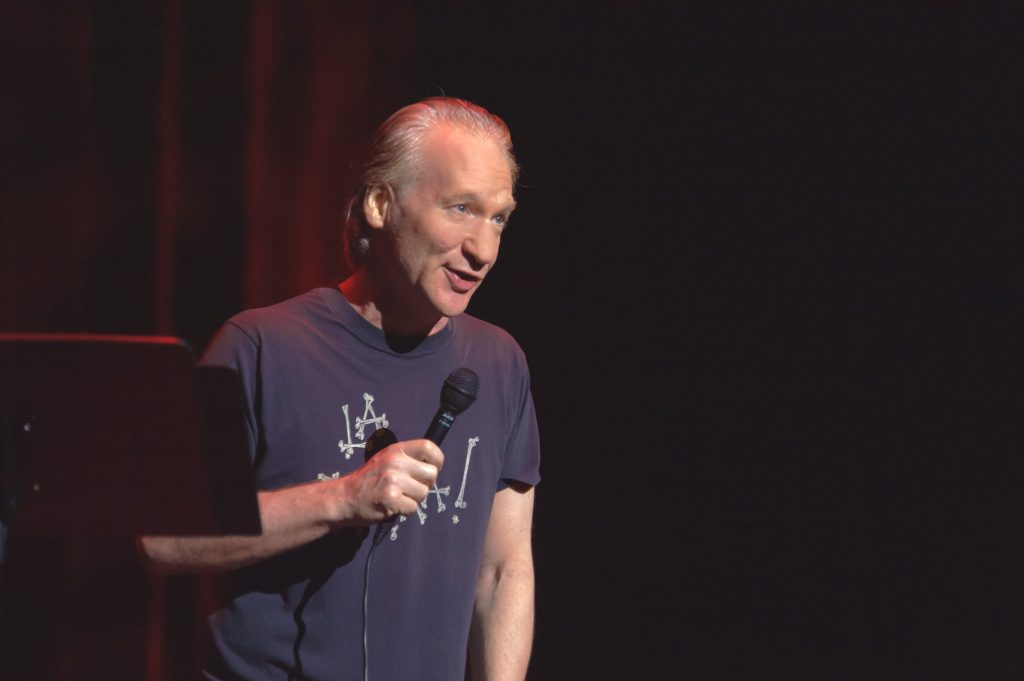Bill Maher has been a staple of TV talk for a couple of decades. His humor is funny, caustic, and decidedly anti-anything that has to do with belief in God. He wears his libertinism like a badge of honor.
In the day when Hugh Hefner reigned over the elites who were not bound by tribal or stifling puritanical rigidity, Maher was a frequent guest at the Playboy Mansion, if you want an idea of what kind of altar he worshipped at.
Many of us part company with Maher on plenty of issues, including that minor matter of whether an all-knowing, all-loving, and all-powerful God rules Bill Maher’s universe or not. But that does not mean that a man who believes in total human autonomy, has made money off belittling believers, and lives by a moral compass that points in whatever direction he feels it should cannot be right about some things.
Bill Maher appeared as a guest on a late-night talk show, and I believe he was right about two things. He was doing one of his patented riffs on popular culture and veered into the restrictions brought upon us all by the COVID-19 pandemic.
The host of the show seemed uncomfortable when Maher said the unexpected. He was not afraid of COVID-19 like he was supposed to be. A rationalist to his marrow, Bill Maher does not believe COVID-19 is some kind of hoax or that it is not dangerous. He believes the facts do not warrant the sense of panic with a disease with a survivability rate for even those in the most at-risk age group, well into the 90% column.
Maher was frustrated that all the restrictions seemed to point to people wanting some form of insurance, or a kind of guarantee of safety. He was also upset that the regulations made it hard for his fellow stand-up comedians to make a living. Jokes are better when they are told where people can hear them. Maher encouraged the live audience in the TV studio and by the nature of the broadcast, all those people watching from home, to get out and live. His direct quote was, “I ain’t going to give it [COVID-19] to you. It’s safe, we’re doing everything we can, there’s distancing, there’s masking. Enjoy, live life. Embrace life,” he said.
When I heard that, I thought I was having one of those Vatican II moments. I heard truth, even from an unlikely source, and I needed to affirm it.
We talk about life all the time in the context that it is the most precious gift God has given us. As Catholics and as Christians, we must view life as sacred from the moment of conception to the end of a natural death. But when it comes to what we should do in between those two events, Maher, believe it or not, has the same answer Jesus had.
We are to live life. Maher wants us to not be overly afraid of a virus — that can be hard sometimes. Jesus tells us to live by doing other things that make us uncomfortable — like forgive our enemies. And if we believe what we say we believe about God’s sovereignty, we will not cower in full body armor in a basement lest a stray microbe find its way into one of our mucus membranes.
In a related rant during the same show, Maher lamented the politicization of just about everything, microbes included, and offered what I consider sage advice. “You want to know how to heal America? Stop talking politics all the time. Stop trying to convince people. It’s a big country with lots of people who don’t think like you no matter what side you’re on.”
When I worked in the television industry, I was positive there were not many people who believed what I believed; yet, at least way back then, people were more civil about differences. The people I work alongside now in yet another iteration of my professional life also do not hold to the same things I hold, especially as it relates to my Catholic identity. I seriously doubt people in the next pew to me at Mass share all my views on a variety of subjects.
I cannot pull anyone into a belief in the Real Presence by argument, but if I am combative, abrasive, and unkind, I can certainly push them away. Maher’s advice to all the cultural watchdogs to get over themselves and come to accept the reality that not everyone is going to think alike is sound counsel indeed.
The world does not need consensus as much as it needs truth, even if the truth is coming from an unlikely source.

